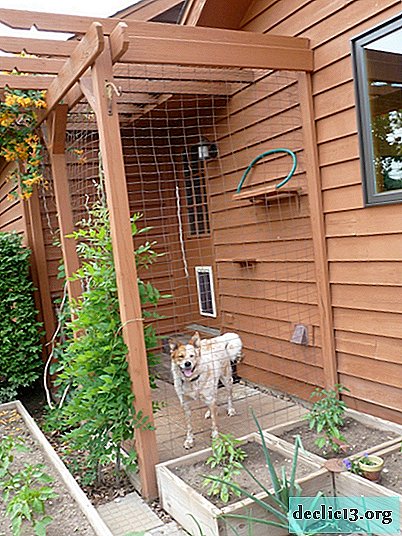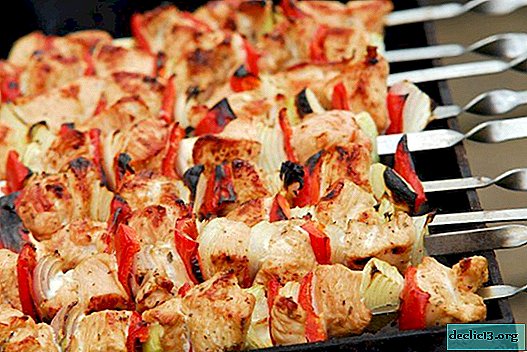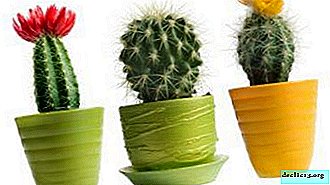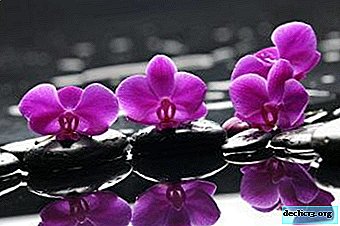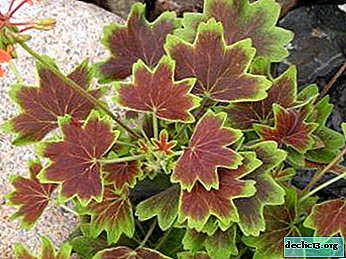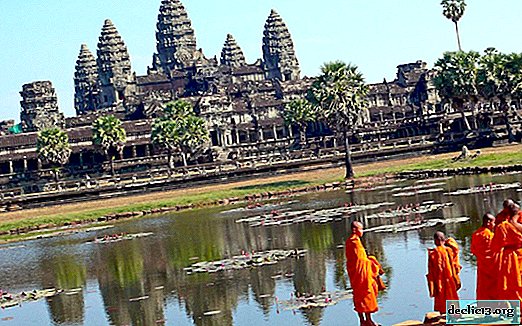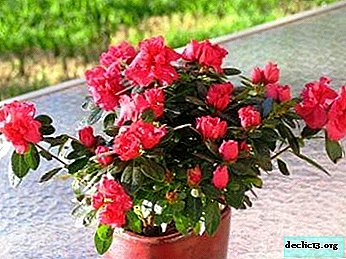Urticaria in adults and children - symptoms and treatment

Urticaria is a combination of ailments that are characterized by the appearance of red blisters on the skin, the size of which reaches several centimeters. The disease is accompanied by itching, and when pressed, the skin lesions become pale. Let's dwell in more detail on how to treat urticaria in adults and children at home.
Types of urticaria in adults and children
At the beginning of the article, I will consider varieties of urticaria that resemble chickenpox. Further, while remaining faithful to the subject, we will talk about the treatment of urticaria in adults and children at home.
- Acute urticaria. It is considered an extremely dangerous variant of the disease. If rashes appear in the larynx, breathing is difficult, which often leads to asphyxiation. If symptoms appear, urgent medical attention, prompt hospitalization and treatment with medications are needed.
- Chronic urticaria. They cause disturbances in the digestive system, liver and kidneys, which have helminthic infestations or infections. Often, a chronic variety of urticaria appears with toxicosis during pregnancy. It is accompanied by typical skin rashes, and the treatment is comprehensive and welcomes preventive measures.
- Thermal urticaria. Causes high temperature on the skin of a person. Often it provokes strong physical exertion and stress. The disease is accompanied by the appearance of rashes on the skin of the hands and upper body. Heat urticaria is accompanied by a headache along with diarrhea, and a diet is prescribed during treatment.
- Cold urticaria. Even with slight hypothermia, people develop redness and swelling of the skin, burning and itching. The exacerbation is facilitated by the combination of cold water with cool air. Even cold foods can cause swelling of the tongue and larynx, and everything ends with a swoon. This type of urticaria also appears against the background of other organic diseases.
- Pigment urticaria. A subspecies of mastocytosis, when plaques of a yellowish tint with a diameter of up to five centimeters appear on the skin and mucous membranes. The surface of the plaques resembles an orange peel. It is accompanied by the appearance of blisters and edema, and with the defeat of large areas of the skin, it is treated through cosmetic surgery.
- Cholinergic urticaria. It manifests itself after a hot shower, heavy sweating or unnormalized physical exertion. It is accompanied by the appearance of itchy blisters on the skin. Often, small rashes merge and increase. They appear on the upper limbs, neck, chest and face. This kind of urticaria appears against the background of thyroid diseases and digestive tract diseases.
- Recurrent urticaria. The development is facilitated by a prolonged allergic reaction. This type of disease is characterized by a wavy course, when exacerbations alternate with attenuation. When the disease progresses, a person experiences nausea, headache, weakness, suffers from insomnia, poor mood and neurotic disorders.
Video from the program Live Awesome
Only common types of urticaria are listed. Regardless of the type of disease, treatment should be comprehensive, timely and qualified. In addition to drug therapy, measures are being taken to eliminate the factors that provoke an allergic reaction. The patient is prescribed a diet and a number of preventive measures aimed at strengthening the immune system are prescribed.
Symptoms and treatment of urticaria in adults
As practice shows, every third adult faces urticaria at least once in a lifetime. At first glance, the disease resembles a nettle burn, which is characterized by a rash in the form of red blisters.
In adults, the ailment is serious, and in some cases becomes chronic.
Symptoms
- The rash occurs quickly and is accompanied by blisters that appear throughout the body and resemble a nettle burn or insect bite. Characterized by severe itching along with burning. Allergic rashes are symmetrical and large.
- A feature of rashes is the ability to stop after another attack. The skin returns to its previous state, and after blisters there are no age spots or scars.
There are various causes of the disease - an allergy to drugs, an infection of a focal nature, digestive tract diseases, food allergies and heredity.
In most cases, the appearance of a skin inflammatory process is preceded by a failure of the immune system, as a result, sensitivity to a high content of biologically active substances increases. This leads to an increase in the amount of histamine in the blood and a decrease in the ability of the human body to inactivate.
Treatment
A major role in the appearance of urticaria is played by disorders in the functioning of the nervous and autonomic system. For this reason, doctors before the start of therapy examine the patient, study the pathogenesis and take into account genetic characteristics. Otherwise, the fight against the disease will harm health.
- Doctors focus on finding an irritant that causes an allergy. In most cases, this provocateur is medication. If itching appears after taking the drug, and the condition of the skin has become restless, it should be abandoned.
- If the disease manifests itself after eating, remove the allergen from the diet by exclusion. As practice shows, hives in adults are caused by wine, chocolate, milk, beer, fish, peanuts and citrus fruits.
- If ultraviolet rays contribute to the onset of the disease, use a sunscreen. When the rash appears, a cream called Celestoderm will come to the rescue. It relieves itching and stops the inflammatory process.
- In the case of the acute form of urticaria, when the allergic reaction is caused by cold, insect bites or animal hair, anti-allergic drugs are used, including Suprastin and Tavegil.
With proper and persistent therapy, the results will not be long in coming, and the disease will recede. I recommend treatment with the involvement of doctors.
Symptoms and treatment of urticaria in children
Urticaria is considered a common childhood allergic disease that affects the skin. Her symptoms are easily diagnosed even by parents. Usually the disease bothers children up to the age of three. With the disease it is impossible to ski or relax in the summer.
Symptoms in children
- Urticaria is accompanied by the appearance on the body of blisters of red or pink color, of various sizes and shapes. The rash itches. The baby itches, which leads to an increase and confluence of skin formations.
- Rash - a response of the skin to the ingestion of an allergen that provokes the production of histamine, which leads to thinning of the walls of blood vessels.
- Excess fluid enters the skin, which leads to the appearance of edema and blisters filled with moisture. The main thing is that the rash quickly and completely disappears from one place and appears in another.
In children, the disease is caused by various irritants that are found in drugs, food, perfumes and dyes. Often the appearance of the ailment is facilitated by various infections, resins, insect bites, impurities in the air and physical irritants, including dust, fluff and others.
How to treat urticaria in children
Treatment is carried out in several stages. First, the exposure to the allergen is eliminated, then the body is cleansed, then medications are taken and the diet is followed.
- First of all, eliminate the factors that provoke the disease. If the illness caused a food allergy, remove the pathogen from the child's body. To achieve the effect, use laxatives, heavy drinking and cleansing enemas.
- Antihistamines are considered effective, eliminating the rash, reducing itching and alleviating the course of the disease. They are prescribed in the form of injections or tablets.
- It is recommended to take drugs before bedtime, especially if the ailment caused insomnia in the baby. To eliminate itching, compresses are used based on a composition consisting of a glass of water and a spoonful of vinegar.
- The diet supports the effect of the treatment and prevents the irritant from seeping back into the body. The diet lasts three weeks.
Urticaria in children is an interesting, important and informative topic. I was not able to fully examine it, since I am not a doctor, however, it turned out to write material of an introductory nature.
Urticaria Prevention
The final part of the article is devoted to the diet and prevention of urticaria. In this disease, include stewed and boiled vegetables, kefir, cottage cheese and fruits that do not cause allergies in the diet. It does not hurt to temporarily abandon confectionery, canned foods and salt. During rehabilitation, do not eat eggs, red peppers, apples, smoked products, honey, cocoa, beets and seasonings.
Do not use makeup during blistering, as it will make the situation worse. In case of hives, give up hot baths and tanning, as ultraviolet rays adversely affect the skin, especially in an irritated state. If the disease manifests itself in the warm season, lubricate the skin with sun cream before leaving the house.
It is impossible to prevent the appearance of an acute form of urticaria. But you can avoid the reappearance of the chronic form. To do this, timely treat diseases that contribute to the appearance of urticaria, regularly undergo an examination, give up cigarettes, alcohol and drugs.
Avoid overheating, hypothermia, tight clothing, and stressful situations, handle cosmetics and household products with care, and take medications under the supervision of doctors.
In case of chronic urticaria, keep a first-aid kit and a list of factors provoking the disease on hand. These measures will not relieve the rash, but will help control itching and maintain social activity.
I hope the material has become a source of useful and interesting information for you.


